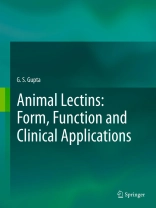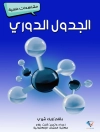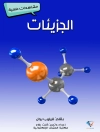Animal Lectins: Form, Function and Clinical Applications presents up-to-date knowledge of animal lectins. Detailed descriptions on biological activities, tissue and/or subcellular distribution, molecular structure, gene organization, possible functions, clinical applications, lectin-ligand interactions and their intervention for therapeutic purposes are provided. The recently discovered C-type lectins as well as further novel super-families of this group of molecules are described in detail. Furthermore, the clinical significance of animal lectins in inflammatory diseases, defects of immune defense and autoimmunity are described and their application as drugs and therapeutic targets is discussed. With the increasing interest in lectins in biomedical research and their therapeutic applications, this book on animal lectins and associated proteins is a must have for researchers in the area.
Tabla de materias
VOLUME 1 .- I. INTRODUCTION .- CHAPTER 1: Lectins: An Overview.- II. INTRACELLULAR LECTINS.- CHAPTER 2: Lectins in Quality Control: Calnexin and Calreticulin.- CHAPTER 3: P-Type Lectins: Cation-dependent Mannose-6-phosphate Receptor.- CHAPTER 4: P-Type Lectins: Cation-independent Mannose-6-phosphate Receptor.- CHAPTER 5: Mannose-6-phosphate Receptor-Homologous Protein Family.- CHAPTER 6: Lectins of ERAD Pathway: F Box Proteins and M-Type Lectins.- III. L-TYPE LECTINS .- CHAPTER 7: L-Type Lectins in ER-Golgi Intermediate Compartment.- CHAPTER 8: Pentraxins: The L-Type Lectins and C-Reactive Protein as a Cardiovascular Risk.- IV. ANIMAL GALECTINS .- CHAPTER 9: Ovrview of Animal Galectin: The Prototype Subfamily.- CHAPTER 10: Galecin-1: Forms and Functions.- CHAPTER 11: Tandem-Repeat Type Galectins.- CHAPTER 12: Galectin-3: Forms, Functions, and Clinical Manifestations.- CHAPTER 13: Galectin-3: A Cancer Marker with Therapeutic Applications.- V. R-TYPE ANIMAL LECTINS .- CHAPTER 14: R-Type Lectin Families.- CHAPTER 15: Mannose Receptor Family: R-Type Lectins.- VI. I-TYPE LECTINS .- CHAPTER 16: I-Type Lectins: Sialoadhesin Family.- CHAPTER 17: CD33 (Siglec 3) and CD33-Related Siglecs.- VII . NOVEL SUPER-FAMILIES OF LECTINS .- CHAPTER 18: Fibrinogen-Type lectins.- CHAPTER 19: Chi-lectins: Forms, Functions and Clinical Applications.- CHAPTER 20: Novel Groups of Fuco-lectins and Intlectins.- CHAPTER 21: Annexins (Lipocortins) .- VOLUME 2 .- VIII. C-TYPE LECTINS .- Collectins .- CHAPTER 22: C-Type Lectins Family.- CHAPTER 23: Collectins: Mannan Binding Protein as a Model Protein.- CHAPTER 24: Pulmonary SP-A: Forms and Functions.- CHAPTER 25: Surfactant Protein-D.- Selectins .- CHAPTER 26: L-selectin (CD62L) and its Ligands.- CHAPTER 27: P-selectin (CD62P) and its Ligands.- CHAPTER 28: E-selectin (CD62E) (Endothelial Leukocyte Adhesion Molecule-1) .- Lectin Receptors on NK Cells .- CHAPTER 29: KLRB Receptor Family and Human Early Activation Antigen (CD69) .- CHAPTER 30: KG2 Subfamily C (KLRC) .- CHAPTER 31: NKG2D Activating Receptor.- CHAPTER 32: KLRC4, KLRG1, and Natural Cytotoxicity Receptors.- Endocytic Receptors .- CHAPTER 33: Asialoglycoprotein Receptor and The Macrophage Galactose-Type Lectin.- CHAPTER 34: Dectin-1 Receptor Family.- CHAPTER 35: Dendritic Cell Lectin Receptors (Dectin-2 Receptors Family).- CHAPTER 36: DC-SIGN Family of Receptors.- Proteoglycans .- CHAPTER 37: Lectican Protein Family.- CHAPTER 38: Proteoglycans of Central Nervous System.- Emerging Groups of C-Type Lectins .- CHAPTER 39: Regenerating (Reg) Gene Family.- CHAPTER 40: Emerging Groups of C-Type Lectins.- CHAPTER 41: Family of CD93 and Recently Discovered Groups of CTLDs.- IX. CLINICAL SIGNIFICANCE OF ANIMAL LECTINS .- CHAPTER 42: MBL Deficiency as Risk of Infection and Autoimmunity CHAPTER 43: Pulmonary Collectins in Diagnosis and Prevention of Lung Diseases.- CHAPTER 44: Selectins and Associated Adhesion Proteins in Inflammatory Disorders.- CHAPTER 45: Polycystins and Autosomal Polycystic Kidney Disease.- CHAPTER 46: Endogenous Lectins as Drug Targets.
Sobre el autor
Dr. G. S. Gupta is a former Professor and Chairman of the Department of Biophysics, Panjab University, Chandigarh, India. His primary areas of research are Molecular and Cell Biology, Enzymology and Protein Chemistry, and Radiation Biology. As a visiting researcher, he has worked at many institutions, including Northwestern University in Evanston, IL, the Center of Immunopathology and Experimental Immunology, INSERM, Paris and the Center of Cytogenetics and Immunogenetics, INSERM, Villejuif (France). He has been honored by Indian agencies as Emeritus Scientist by CSIR, Emeritus Professor by University Grants Commission (UGC), and Emeritus Medical Scientist by Indian Council of Medical Research (ICMR). Professor Gupta has made significant research contribution in scientific research and published 155 original research articles and reviews in Books and international journals of repute. He is the recipient of several awards and international fellowships including a WHO fellowship, the INSERM French Government fellowship, and the fellowship under Indo-French Exchange programme. Indian Council of Medical Research has honored him by conferring Swaran Kanta Dingley Oration Award of 1993 for his research contribution and extending knowledge in male reproduction. Dr. Gupta is the author of Proteomics of Spermatogenesis published by Springer (New York, USA) in 2005 and has contributed 34 reviews on the subject, as a single author. Associated with national and international scientific societies, he has chaired scientific sessions and delivered invited lectures at national and International conferences.
Professor G.S. Gupta holds master’s degrees in Physical Chemistry and Biochemistry from Lucknow University, Lucknow, and a Ph.D. in Biophysics from Panjab University, Chandigarh (India).












